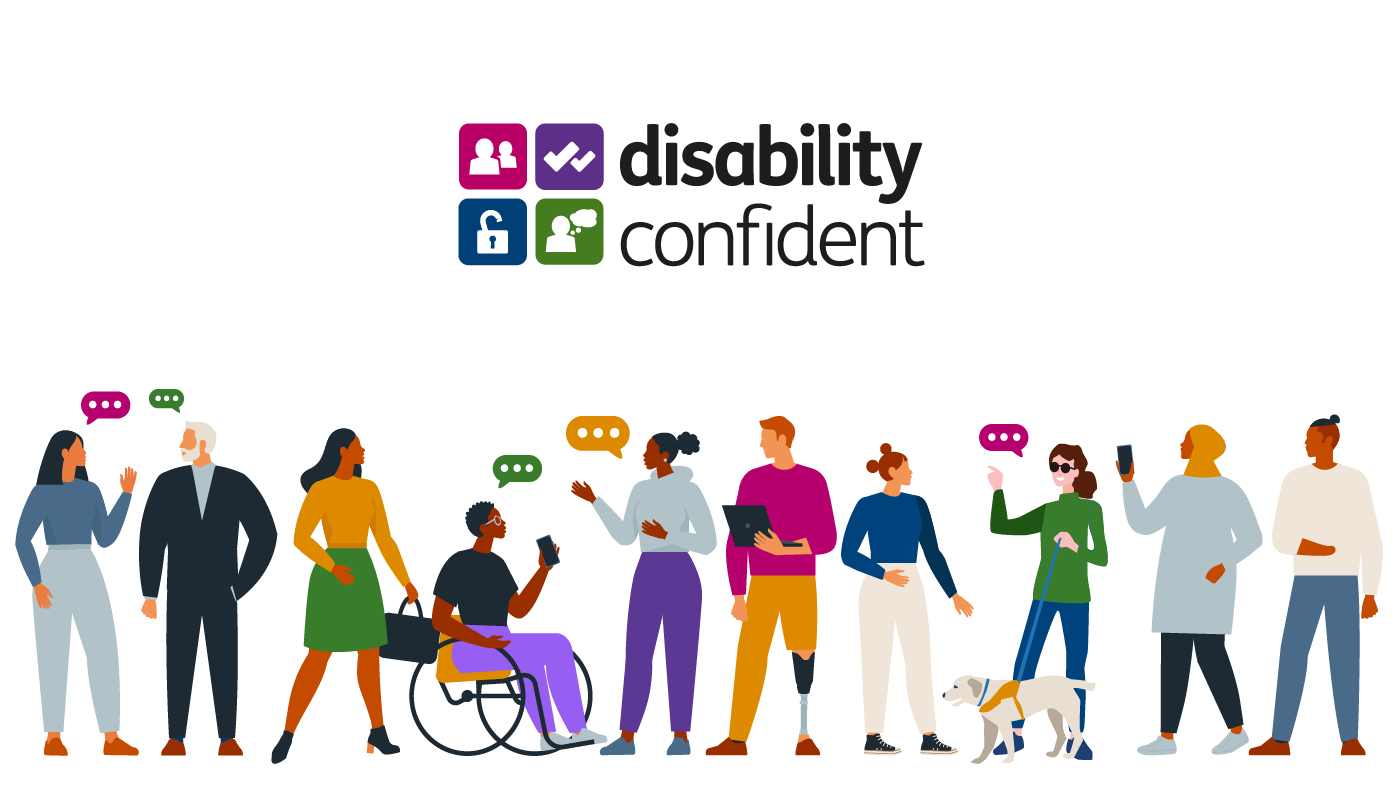
Leisuresec are proud to be Disability Confident Committed. Disability Confident is creating a movement of change, encouraging employers to think differently about disability and take action to improve how they recruit, retain and develop disabled people. Being Disability Confident is a unique opportunity to lead the way in your community, and you might just discover someone your business cannot do without.
It was developed by employers and disabled people’s representatives to make it rigorous but easily accessible – particularly for smaller businesses. The scheme is voluntary and access to the guidance, self-assessments and resources is completely free.
These are the commitments Leisuresec has taken to become a Disability Confident Committed.
1. Ensuring the recruitment process is inclusive and accessible
- ensuring against discrimination
- making job adverts accessible
- providing information in accessible formats (for example, large print)
- accepting applications in alternative formats (for example, electronically)
2. Communicating and promoting vacancies
- advertising vacancies through a range of channels, and use your Disability Confident badge to make sure potential applicants know you are an inclusive employer
- getting advice and support from Jobcentre Plus, Work and Health Programme providers, (If you’re in Scotland contact Fair Start Scotland) recruiters and/or your local disabled people’s user led organisations (DPULOs)
- reviewing current recruitment processes
3. Anticipating and providing reasonable adjustments as required
Employers have a duty under the Equality Act 2010 to make ‘reasonable adjustments’ in the workplace where a disabled person would otherwise be put at a substantial disadvantage compared with their colleagues.
Whether or not an adjustment has to be made depends on how ‘reasonable’ it is - and that’s something that will hinge on the individual circumstances of each case, and the resources of the employer. What is seen as reasonable for a large multi-national company might not be seen as reasonable for a very small employer.
How
- Making reasonable adjustments (such as changes to working patterns, adaptations to premises or equipment and provision of support packages) will ensure disabled workers are not disadvantaged when applying for and doing their jobs. This includes contract workers, trainees, apprentices and business partners.
- Many adjustments are straightforward and easy to carry out - particularly if there’s been a little lateral thinking about how an accommodation can be reached. Often these adjustments will cost nothing or very little.
4. Supporting any existing employee who acquires a disability or long term health condition, enabling them to stay in work
- Retaining an employee who has become disabled, thus keeping their valuable skills and experience and saving on the cost of recruiting a replacement. More information

